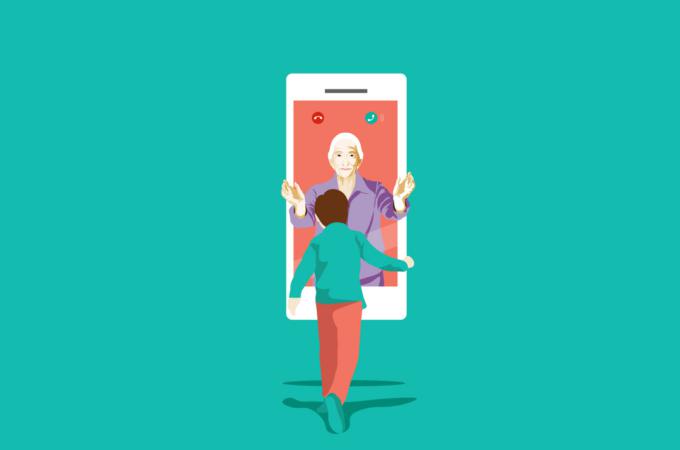Mapping out our new social norms
In all likelihood, history will look back on the COVID-19 pandemic as a transformative event. It is difficult to conceive of any one aspect of life that has been left unaffected. The necessities of mask-wearing, social distancing, staying home, and virtual meetings all represent social changes. Just as viruses evolve, social conventions evolve in response to new conditions. What do the new "social strains" of the COVID-19 era look like? There are hopeful signs that we are becoming more compassionate, mindful, and responsible social creatures as a result of our shared ordeals.
The health crisis and its related economic crisis have given rise to mutual aid societies across the country as people band together to support their financially vulnerable or immunocompromised neighbors. These groups, many of them spontaneously formed on the neighborhood level, have organized food drives, grocery deliveries, mask distribution, and opportunities for neighbors to offer specific volunteer services. The concept of mutual aid has helped keep neighborhoods connected and vulnerable residents afloat.
On a much larger scale, people across the country, of all races, have united in mass protest against the systemic, violent oppression of nonwhites, specifically black Americans. This was triggered by the murder of George Floyd, an event that occurred at the height of the pandemic quarantine. Although there have been many precedents to this type of slaying, it has been widely noted that the mass public outcry this time was unique. The "pandemic mindset" has facilitated more Americans' capacity for empathy and social awareness, including many white Americans who in earlier times may not have felt compelled to join Black Lives Matter protests. It seems the conditions of the pandemic helped sparked a desire to look beyond self-interest and understand the suffering of others.
While some countries have become inured to public mask wearing during previous epidemics, the phenomenon is a novel one in America. In this sense, our adoption of masks has made us better world citizens, forcing us to accept that our human vulnerabilities have nothing to do with national histories or borders.
Our sense of citizenship gives us a new sense of self-awareness -- the awareness that our individual choices, such as the choice to wear a mask, has an impact on everyone else. A sense of citizenship amplifies the way we view our individual actions. We understand that every time our masks protect us from infection, they are also stopping a potential outbreak that would affect scores of others who later come in contact with us. To be concerned with how one's individual choices and behaviors affects the rest of society is the essence of citizenship.
During the early stages of the pandemic, with all gathering places shut down, there was an eerie silence that prevailed along once-busy streets. The disappearance of traffic opened our ears to the sounds of birds, the rustling of leaves, even the echoing of pedestrian footsteps. Without the usual distractions of our daily lives, we had no choice but to live more fully in the present. The health crisis has also made it imperative that we be mindful about social distancing, washing hands, and wearing masks. Because we can't afford to operate on auto-pilot, we are becoming more mindful about our surroundings and our actions.
Older adults living in assisted and senior living communities have endured months without group programs, group dining or in-person visits from family and friends. People who never thought they would become adopters of video chatting have had crash courses in Zoom, FaceTime and Google Meet in order to have virtual visits with their families. Although internet platforms may not be the ideal way to have social visits, they are playing a vital role in keeping us connected -- whether with family and friends, or to jobs that are being worked from home.
The time of the pandemic has not been easy and it is far from being over. Once a sense of normalcy finally returns, one can only hope that we will look back on the pandemic as a trying time that made us more compassionate, better citizens, and more mindful -- not to mention more tech savvy.
- Adam Johnson writes for Youville Assisted Living Residences, member of Covenant Health Systems, a Catholic, multi-institutional health and elder care organization serving New England.



















